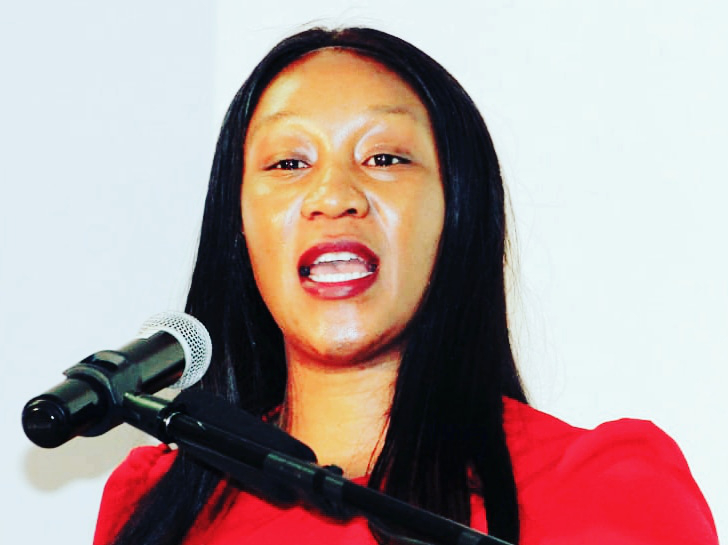Phumlani Mntambo, LGSETA Board Chairperson
This webinar was hosted by the Mail & Guardian and the Local Government Sector Education Training Authority (LGSETA). It featured Paul G West, an independent consultant in the fields of education and project management; Xolile George, CEO of the South African Local Government Association (SALGA); Tebogo Motlashupeng from COGTA; Phumlani Mntambo, LGSETA Board Chairperson; Koena Ramotlou, General Secretary of the South African Municipal Workers’ Union (SAMWU); and Stephanie Grey, Deputy DSG of IMATU (Independent Municipal and Allied Trade Union). It was facilitated by Councillor Ntombi Koloti of SALGA.
The efficiency of local governments is a pressing issue as South Africa seeks ways to recover from the Covid-19 pandemic. Are they equal to the task, can they stay abreast of the fourth industrial revolution (4IR), and how can things be improved to ensure that communities receive the services they deserve? The LGSETA examined this topic with the help of local experts.
 Paul West, Independent consultant in the fields of education and project management
Paul West, Independent consultant in the fields of education and project managementPaul G West said that Covid-19 has affected over a billion learners, but it was widely acknowledged that there was a crisis in South African education even before the pandemic. Various strategies that address this crisis were then explored, although there are no “silver bullets”; holistic, creative thinking and inclusivity are vital, and the challenges of the most marginalised should be dealt with first. Everyone needs to be involved to make the transition.
Blended learning, which involves both online and group learning, is the way forward. West provided several examples of how this can take place; learners can be in one venue and the teacher elsewhere; textbooks can be online, etcetera. Gaps need to be identified, such as problems with access to electricity and/or WiFi. The “first kilometre” is how far a learner is from being connected; everybody needs the technology! Teachers and lecturers must be digitally fluent, so they can pass these skills on to learners. It is vital that learners exit with the skills required by industry.
Xolile George introduced how SALGA aims to align with the objectives of the National Development Plan to improve education, raise employment and living conditions and build the capability of the state’s transformative role. Covid-19 has pushed institutions to adopt online strategies, speeding up the transition to the 4IR. Post the pandemic, there are many new opportunities opening up. The strategic objectives of SALGA focus heavily on developing leadership competencies and incorporate online and blended learning to enhance governance capabilities and service delivery.
 Xolile George, CEO of the South African Local Government Association
Xolile George, CEO of the South African Local Government Association The transition to digitisation requires broad access to data and learning programmes. Surveys have been conducted to assess whether employees are ready to embrace the new digital platforms; some are ready, but many still prefer blended to online presentations. All resources at local government’s disposal must be incorporated post Covid-19 to reskill the workforce.
Tebogo Motlashupeng from COGTA said that despite the disruptions it caused, Covid-19 cannot be used as a scapegoat for not delivering capacitation goals. Relations must be improved between all three spheres of government. Local government is the interface between government and the people, and requires continuous upgrading to address community needs. Leadership and skills development need improvement, as an integral part of the District Development Model. Consultations and regulations are helping to establish a culture of accountability.
Local government is the closest sphere of government to communities, so competency is essential at all levels, starting with individual employees. Skills development must correspond to the needs of the municipalities, which requires skills audits to identify gaps, and sufficient budget for this is required. Staff regulations will professionalise local public administration; skills development will take place in collaboration with the LGSETA. The role of Skills Development Officers must be clearly defined.
Phumlani Mntambo spoke about the training difficulties that the LGSETA faced during the pandemic. He said the main priorities are still to improve education and the capabilities of citizens, to make the future work. Education must match the demands of the market, in a demand-led system, and for this to occur, enrolment procedures must be improved at universities and TVET colleges. The skills revolution must support economic growth within local government.
 Koena Ramotlou, General Secretary of SAMWU. (Photo: Puxley Makgatho/Sowetan Live)
Koena Ramotlou, General Secretary of SAMWU. (Photo: Puxley Makgatho/Sowetan Live)Koena Ramotlou said that shop stewards play a vital role in ensuring that the workforce gets the necessary training and stay up to date with 4IR. The right skills must be in place so that service delivery is not compromised and communities receive their rights, as outlined in the constitution. If the correct people are consistently upskilled with the right skills, municipalities will become self-reliant and external consultants will not be required.
SAMWU is committed to the upskilling of municipal staff; planning for what skills are acquired must be carefully worked out; and ensuring that those who receive training get the promotions they deserve. Project management must be done properly, Ramotlou said, so that government funds actually flow to the projects they are allocated to.
Mntambo responded to a comment on how the sector will be professionalised. He admitted that there “is still a lot of work to be done” and that there is a lot of unauthorised and wasteful expenditure. Partnerships with COGTA and LGSETA need to be strengthened, and the issues of corruption and cadre deployment must be addressed.
A question was raised by audience member Conti Matlakala, that local government is supposed to be a major employer for local communities, but how do we mitigate the perception that it is the only employer, and skill our communities? Service delivery must be used to benefit communities, replied Mntambo: for instance, if local government builds stalls for vegetable vendors, they should take advantage of these facilities.
Ramotlou said that the services required for newly established townships — such as refuse removal — creates employment, so skills development is linked to the growth of the population, and there is no threshold for local government employment. Professionalisation of this sector involves having less ghost positions; the correct skills must be there for the necessary tasks.
 Councillor Ntombi Koloti of SALGA moderated the webinar
Councillor Ntombi Koloti of SALGA moderated the webinarStephanie Grey talked on the role of shop stewards as “vanguards” — as leading the upskilling of the workforce. The Covid-19 pandemic has hastened changes such as online shopping and tele-medicine, so certain jobs have become redundant. The retail sector is closing down its brick-and-mortar shops, but other opportunities have opened up, for example, for delivery drivers. Our country does not produce its own 4IR infrastructure, such as TVs, tablets and software, which puts it in a precarious position. South Africa must start building its own infrastructure, recommends the Presidential Commission Report on the Fourth Industrial Revolution.
IMATU has shop stewards in all municipalities, so they are ideally placed for upskilling the community, but major investment is required in IT training for stewards, and in infrastructure such as IT labs so that rural communities can access connectivity. Women shop stewards inspire women in the workplace to learn new skills, but they must be capacitated themselves, and for this to happen, the gender imbalances of the past must be redressed. IMATU is ready to address the challenges of 4IR.
To view the webinar, click on the image below:
